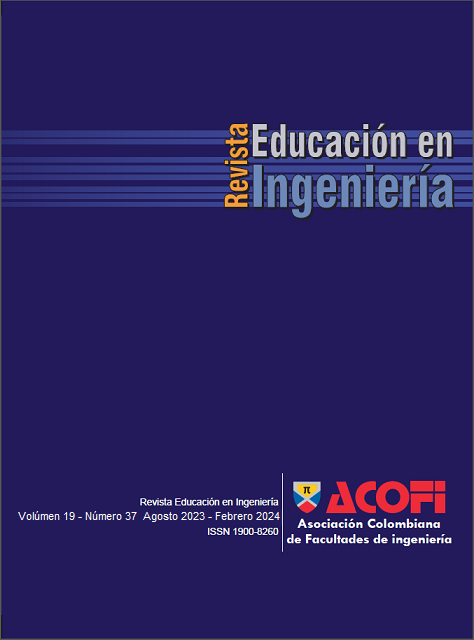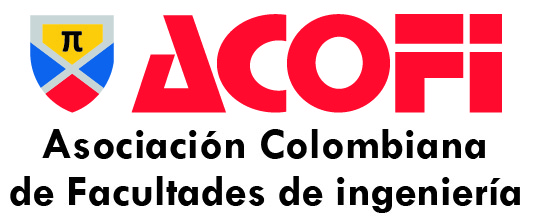Applying a new game element called backward grading for student engagement
DOI:
https://doi.org/10.26507/rei.v19n37.1278Palabras clave:
GamificaciónResumen
La participación de los estudiantes se refiere a qué tan activamente involucrado y entusiasta está un estudiante en su proceso de aprendizaje. Los estudiantes comprometidos participan activamente en su educación, muestran voluntad de aprender y están motivados para lograr sus objetivos académicos. La participación de los estudiantes es importante para las actividades de aprendizaje y se puede lograr mediante el uso de elementos de diseño de juegos en contextos ajenos al juego o gramificación. En este trabajo se diseñó un enfoque de gamificación que incorpora elementos del juego como torneo, equipos, desafíos multidisciplinarios, calificación, calificación regresiva, insignias, puntos y tabla de clasificación. Especialmente el nuevo elemento del juego de calificación regresiva está diseñado para lograr la participación de los estudiantes. La calificación del elemento del juego promueve competiciones entre equipos de estudiantes. Por otro lado, el novedoso elemento del juego de calificación regresiva promueve la contribución a las competiciones. El entorno de gamificación diseñado se aplica a un curso de tecnologías emergentes y los resultados muestran que se logra la participación de los estudiantes.
Descargas
Referencias bibliográficas
A. H. S. Metwally, L. E. Nacke, M. Chang, Y. Wang, & A. M. F. Yousef, “Revealing the hotspots of educational gamification: An umbrella review”, International Journal of Educational Research, 109, 2021, pp. 101832. https://doi.org/10.1016/j.ijer.2021.101832
K. Aleksić-Maslać, M. Rašić, & P. Vranešić, “Influence of gamification on student motivation in the educational process in courses of different fields”, In 2018 41st international convention on information and communication technology, electronics and microelectronics (MIPRO) (pp. 0783-0787). IEEE, 2018, May. https://doi.org/10.1109/EDUCON45650.2020.9125108
M. Milosz, & E. Milosz, “Gamification in Engineering Education–a Preliminary Literature Review”, In 2020 IEEE Global Engineering Education Conference (EDUCON) (pp. 1975-1979). IEEE, 2020, April. https://ieeexplore.ieee.org/document/9125108
A. Khaldi, R. Bouzidi, & F. Nader, “Gamification of e-learning in higher education: a systematic literature review”, Smart Learning Environments, 10(1), 10, 2023.
M. M. Alhammad, & A. M. Moreno, “Gamification in software engineering education: A systematic mapping”, Journal of Systems and Software, 141, 131-150, 2018. https://doi.org/10.1016/j.jss.2018.03.065
R. I. Malas, & T. M. Hamtini, “A gamified e-learning design model to promote and improve learning”, International Review on Computers and Software, 11(1), 8-19, 2016. https://doi.org/10.15866/irecos.v11i1.7913
F. Moreira, M. J. Ferreira, D. F. Escudero, C. S. Pereira, & N. Durão, “Teaching and learning Modelling and Specification based on gamification”, In 2020 15th Iberian Conference on Information Systems and Technologies (CISTI) (pp. 1-6). IEEE, 2020, June. https://ieeexplore.ieee.org/document/9140829
T. D. Indriasari, A. Luxton-Reilly, & P. Denny, “Improving student peer code review using gamification”, In Proceedings of the 23rd Australasian Computing Education Conference (pp. 80-87), 2021, February. https://doi.org/10.1145/3441636.3442308
F. Portela, “A new and interactive teaching approach with gamification for motivating students in computer science classrooms”, In First International Computer Programming Education Conference (ICPEC 2020). Schloss Dagstuhl-Leibniz-Zentrum für Informatik, 2020. https://doi.org/10.4230/OASIcs.ICPEC.2020.19
S. Shorn, “Teaching computer programming using gamification”, In Proceedings of the 14th, 2018.
A. Rojas-López & E. G. Rincón-Flores, “Gamification as learning scenario in programming course of higher education”, In International Conference on Learning and Collaboration Technologies (pp. 200-210). Springer, Cham, 2018, July.
B. Marín, J. Frez, J. Cruz-Lemus & M. Genero, “An empirical investigation on the benefits of gamification in programming courses”, ACM Transactions on Computing Education (TOCE), 19(1), 1-22, 2018. https://doi.org/10.1145/3231709
J. Maiga & A. W. R. Emanuel, “Gamification for Teaching and Learning Java Programming for Beginner Students-A Review”, J. Comput., 14(9), 590-595, 2019. https://doi:10.17706/jcp.14.9.590-595
A. F. Barriales, J. V. Paragulla & L. Andrade-Arenas, “Gamification as part of teaching and its influence on learning computational algorithms”, In 2020 IEEE World Conference on Engineering Education (EDUNINE) (pp. 1-4). IEEE, 2020, March. https://doi.org/10.1109/edunine48860.2020.9149510
L. R. Begosso, L. C. Begosso, D. S. da Cunha, J. V. Pinto, L. Lemos & M. Nunes, “The Use of Gamification for Teaching Algorithms”, In FedCSIS (Communication Papers) (pp. 225-231), 2018, September. https://doi.org/10.15439/2018f165
V. Jusas, D. Barisas & M. Jančiukas, “Game elements towards more sustainable learning in object-oriented programming course”, Sustainability, 14(4), 2325, 2022. https://doi.org/10.3390/su14042325
D. Dicheva, C. Dichev, L. Cassel, B. Guy & K. Irwin, “Exploring the Impact of Non-conventional Gamification Elements on Student Motivation and Engagement”, In 2021 IEEE Frontiers in Education Conference (FIE) (pp. 1-9). IEEE, 2021, October.
D. Kučak & M. Kučak, “Gamification in computer programming education–systematic literature review”, In 2022 45th Jubilee International Convention on Information, Communication and Electronic Technology (MIPRO) (pp. 517-520). IEEE, 2022, May. DOI: 10.23919/MIPRO55190.2022.9803457
P. E. Anderson, C. Turner, J. Dierksheide & R. McCauley, “An extensible online environment for teaching data science concepts through gamification”, In 2014 IEEE frontiers in education conference (FIE) proceedings (pp. 1-8). IEEE, 2014, October. https://doi.org/10.1109/fie.2014.7044205
X. Liu, “A small java application for learning blockchain”, In 2018 IEEE 9th Annual Information Technology, Electronics and Mobile Communication Conference (IEMCON) (pp. 1271-1275). IEEE, 2018, November. https://doi.org/10.1109/iemcon.2018.8614961.
H. Hamann, C. Pinciroli & S. von Mammen, “A Gamification Concept for Teaching Swarm Robotics”, In 2018 12th European Workshop on Microelectronics Education (EWME) (pp. 83-88). IEEE, 2018, September. https://doi.org/10.1109/ewme.2018.8629397
D. A. Isabelle, “Gamification of entrepreneurship education”, Decision Sciences Journal of Innovative Education, 18(2), 203-223, 2020. https://doi.org/10.1111/dsji.12203
M. Piteira, C. Costa & M. Aparicio, “Computer programming learning: how to apply gamification on online courses?”, Computer programming learning: how to apply gamification on online courses? (2), 2018. https://doi.org/10.20897/jisem.201811
L. Feldbusch, F. Winterer, J. Gramsch, L. Feiten & B. Becker, “SMILE Goes Gaming: Gamification in a Classroom Response System for Academic Teaching”, In CSEDU (2) (pp. 268-277), 2019.
M. A. Alsubhi, N. S. Ashaari & T. S. M. T. Wook, “Design and evaluation of an engagement framework for e-learning gamification”, International Journal of Advanced Computer Science and Applications, 12(9), 2021.
A. Puig, I. Rodríguez, Á. Rodríguez & I. Gallego, “Evaluating Learner Engagement with Gamification in Online Courses”, Applied Sciences, 13(3), 1535, 2023. https://doi.org/10.3390/app13031535
N. Taşkın & E. Kılıç Çakmak, “Effects of gamification on behavioral and cognitive engagement of students in the online learning environment”, International Journal of Human–Computer Interaction, 1-12, 2022. https://doi.org/10.1080/10447318.2022.2096190
L. E. G. de Vasconcelos, L. G. de Vasconcelos, L. B. Oliveira, G. Guimarães & F. Ayres, “Gamification applied in the teaching of agile scrum methodology”, In Information Technology-New Generations (pp. 207-212). Springer, Cham, 2018. https://doi.org/10.1007/978-3-319-77028-4_102
G. P. Gasca-Hurtado, M. C. Gómez-Álvarez & B. Manrique-Losada, “Using gamification in software engineering teaching: Study case for software design”, In World Conference on Information Systems and Technologies, WorldCIST 2019 (pp. 244-255). Springer Verlag, 2019, January. https://doi.org/10.1007/978-3-030-16187-3_24
K. Ertan & S. A. Kocadere, “Gamification design to increase motivation in online learning environments: a systematic review”, Journal of Learning and Teaching in Digital Age, 7(2), 151-159, 2022. https://doi.org/10.53850/joltida.1020044
I. E. F. Costa & S. R. B. Oliveira, “A Systematic Strategy to Teaching of Exploratory Testing using Gamification”, In ENASE (pp. 307-314), 2019, May. https://doi.org/10.5220/0007711603070314
Descargas
Publicado
Cómo citar
Número
Sección
Licencia
Se autoriza la reproducción total o parcial de los documentos publicados en la Revista siempre y cuando se cite la fuente y el autor.
| Estadísticas de artículo | |
|---|---|
| Vistas de resúmenes | |
| Vistas de PDF | |
| Descargas de PDF | |
| Vistas de HTML | |
| Otras vistas | |









